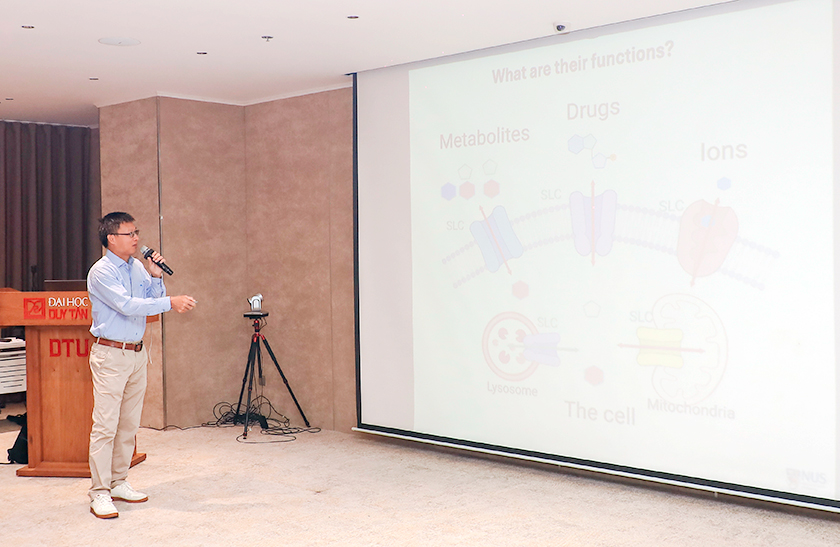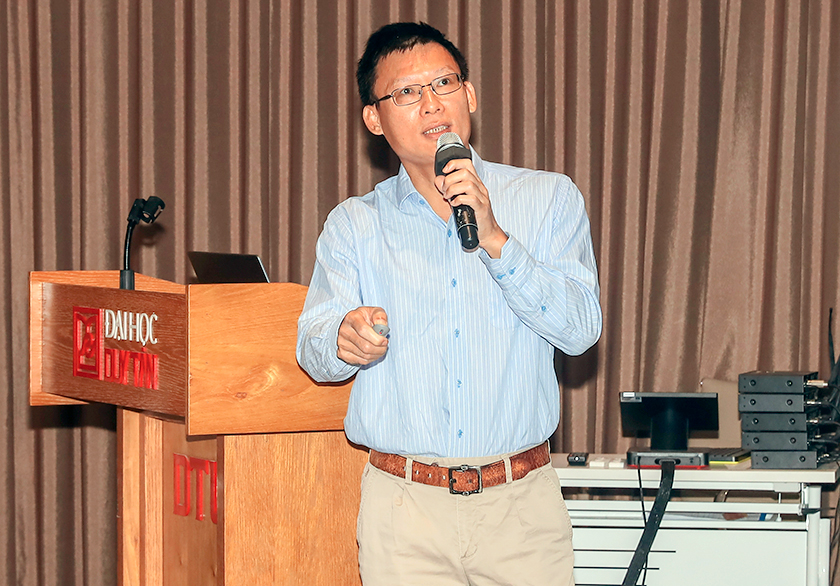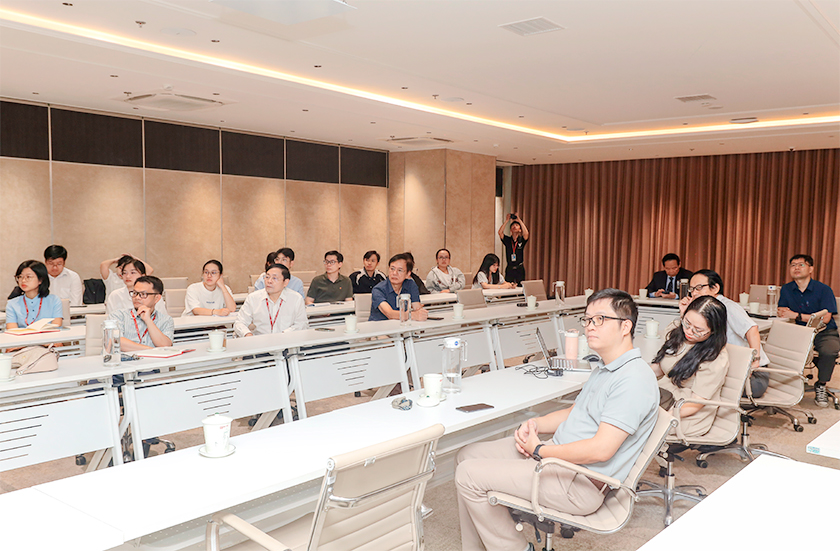On June 10, 2025, DTU hosted a seminar on “Diverse roles of metabolite membrane transport proteins in human health and disease”. The speaker was Assoc.Prof. Dr Nguyen Nam Long, a renowned scientist from the National University of Singapore (NUS). The event drew a large audience of experts in biomedical science, as well as DTU lecturers and students. It provided an excellent opportunity for scientists, lecturers, and students to exchange and discuss academic issues related to this fascinating research topic.

Dr Nguyen Nam Long presented his in-depth research
“We greatly value the presence and academic contributions of Assoc.Prof. Dr Nguyen Nam Long at this seminar,” People’s Teacher Prof. Dr MD Tran Huu Dang, DTU Vice Provost, said. “This is an opportunity for our lecturers and students to gain direct access to modern knowledge and an outstanding research model from one of Asia’s leading universities. The event also opens up promising avenues for future research collaboration, academic exchange, and scientific workforce development between DTU and other universities worldwide.”
Dr Nguyen Nam Long is currently laboratory head at the Yong Loo Lin School of Medicine and the Life Sciences Institute at the National University of Singapore. His interdisciplinary research focuses on membrane transport, cellular metabolism, and pathophysiology. To date, he has published over forty scientific papers in prestigious journals such as Nature, Cell Research, PNAS, and JCI Insight, as either main author or co-author.
He has won several prestigious awards:
- NUS Young Investigator Award (2017),
- Cayman Chemical Early Career Award from FASEB (2019),
- NUS Medicine Excellence in Research Award (2019).

Dr Nguyen Nam Long presented his latest research findings amidst
the rising prevalence of metabolic and genetic disorders
In addition to research, he also teaches undergraduate and postgraduate courses at NUS and has supervised over fifty students. He is an editorial board member of Molecular Biology Reports and frequently serves as a reviewer for top-tier journals such as Nature, Science, and PNAS.
During the seminar, Dr Nguyen Nam Long presented his in-depth research, focusing on the physiological and molecular roles of membrane transporters - an important class of proteins present in nearly all human cells. Drawing from deep knowledge and diverse experimental experience, he shared his latest findings on the functions, mechanisms, and potential applications of solute carrier (SLC) transport proteins, particularly amidst the rising prevalence of metabolic and genetic disorders.
The information he presented was highly up-to-date and furthermore showcased the effective integration of advanced methodologies - lipidomics, metabolomics, cell and animal models - to unravel the functions of membrane proteins, which are notoriously difficult to study due to their small size and integration in lipid membranes. Specific examples, such as the discovery of SGLT1/2 inhibitors for diabetes and heart failure treatment, or novel neurological disease targets through neurotransmitter transport, sparked keen interest among the attendees. The product LPC-DHA, which enhances the delivery of omega-3 to the brain and eyes via SLCs, is currently being commercialized.

The seminar attracted a large number of biomedical experts and DTU lecturers and students
The seminar had a vibrant atmosphere, with numerous in-depth questions on topics such as ligand identification techniques, tissue-target specificity, and the development of next-generation drugs based on membrane transporters. Discussions also extended to the potential for bilateral collaboration in PhD training and interdisciplinary projects between NUS and DTU, especially in molecular biomedical science and medical biotechnology.
(Media Center)